Retro Replay Review
Gameplay
An American Tail: Fievel Goes West delivers a classic side-scrolling platformer experience that will appeal to fans of 16-bit era action games. Players control the young mouse Fievel as he traverses dusty saloons, rocky canyons, and desert plains in pursuit of the villainous Cat R. Waul. The core mechanics revolve around running, jumping, and firing Fievel’s trusty pop-gun. Each jump feels responsive, and the collision detection on platforms and enemies is generally fair, keeping frustration to a minimum even in tighter sections.
(HEY YOU!! We hope you enjoy! We try not to run ads. So basically, this is a very expensive hobby running this site. Please consider joining us for updates, forums, and more. Network w/ us to make some cash or friends while retro gaming, and you can win some free retro games for posting. Okay, carry on 👍)
The pop-gun can be upgraded by collecting hidden power-up icons throughout each level. Initially, Fievel fires simple round pellets, but with enough icons he can unleash spread shots or higher-damage blasts that make short work of Paw Toos and other menacing critters. Although the power-ups are welcome, they’re balanced by occasional enemy placements that punish overreliance on ranged attacks and force you to master jump-shoot combos.
Game progression is straightforward: complete all stages in the Frontier Town, the Coyote Canyon, and the Mine Shaft before confronting Cat R. Waul’s final hideout. While levels feature some branching paths, the overall structure is linear. Hidden collectibles—such as extra lives, bonus coins, and secret treasure troves—encourage exploration, but backtracking can feel repetitive once you’ve learned the stage layouts.
Graphics
Visually, Fievel Goes West embraces a bright, cartoon-inspired palette that evokes the spirit of the animated film. Backgrounds showcase rolling desert vistas, wooden boardwalks, and swinging lanterns in saloon interiors. Each environment is richly detailed, from the dusty wagon wheels to the creaking mine carts, and the parallax scrolling layers add depth without overwhelming the action.
The character sprites are well-animated and expressive. Fievel himself darts and crouches with smooth, fluid motions, while enemies like Paw Toos and feral prairie hounds bob and weave convincingly. Boss encounters—particularly against mounted cat gunslingers—feature larger, more elaborate sprite work and spotlight mid-fight animations that accentuate dramatic moments.
Despite the positive aspects, some texture details can appear slightly muddy on modern displays, especially in darker cave sections. However, any slight blurring is offset by strong color contrasts and clear hitbox indicators. Overall, the art direction succeeds in bringing the world of Fievel Goes West to life in a way that feels faithful to its cinematic roots.
Story
Following the plot of the film, the game sets up Fievel’s journey from the crowded immigrant ship to the untamed Wild West. Opening cutscenes (presented as static illustrations with text captions) introduce the Mousekewitz family’s dreams of a better life, while the threat of Cat R. Waul’s buffet-hungry gang establishes a clear sense of urgency. Though voice acting is absent, the in-game text and expressive animations convey charming personalities for key characters.
Each level contains brief interstitial story panels to advance the narrative. Fievel’s friendship with the dog sheriff Wylie Burp and the non-rodent-eating cat Tiger is highlighted through contextual scenes—such as Wylie tipping his hat or Tiger blocking an enemy ambush. These moments break up the platforming action and add emotional weight, even if they lack full animation or voiceover.
While the main storyline is fairly linear and predictable for anyone familiar with the movie, the game injects a playful sense of humor in enemy design and stage hazards. For example, conveyor belts in the mines occasionally drop dynamite sticks, and some levels greet you with goofy “Wanted” posters. Though not a narrative powerhouse, the story provides enough context to keep motivations clear and the stakes consistent.
Overall Experience
An American Tail: Fievel Goes West is a solid tribute to its cinematic counterpart, delivering clean platforming, colorful visuals, and a coherent storyline. Difficulty ramps steadily, offering a fair challenge for younger players or retro-game enthusiasts, while hidden secrets and optional power-ups provide extra replay value for completists. Sessions typically last 20–30 minutes per playthrough, with about five to six levels plus boss fights.
One of the game’s greatest strengths is its nostalgic charm. The soundtrack features jaunty Western-inspired tunes that loop pleasantly without becoming fatiguing. Sound effects—like the pop of Fievel’s gun and the clang of landing on a metal platform—are simple but effective, reinforcing each action without audio clutter.
Although it doesn’t revolutionize the genre, Fievel Goes West remains a rewarding platform adventure with broad appeal. Families seeking a kid-friendly challenge will appreciate the gentle difficulty curve, while longtime platforming fans will enjoy hunting for secrets and mastering each stage. If you’re drawn to colorful artwork, endearing characters, and old-school side-scrolling fun, Fievel’s frontier quest is well worth exploring.
 Retro Replay Retro Replay gaming reviews, news, emulation, geek stuff and more!
Retro Replay Retro Replay gaming reviews, news, emulation, geek stuff and more!
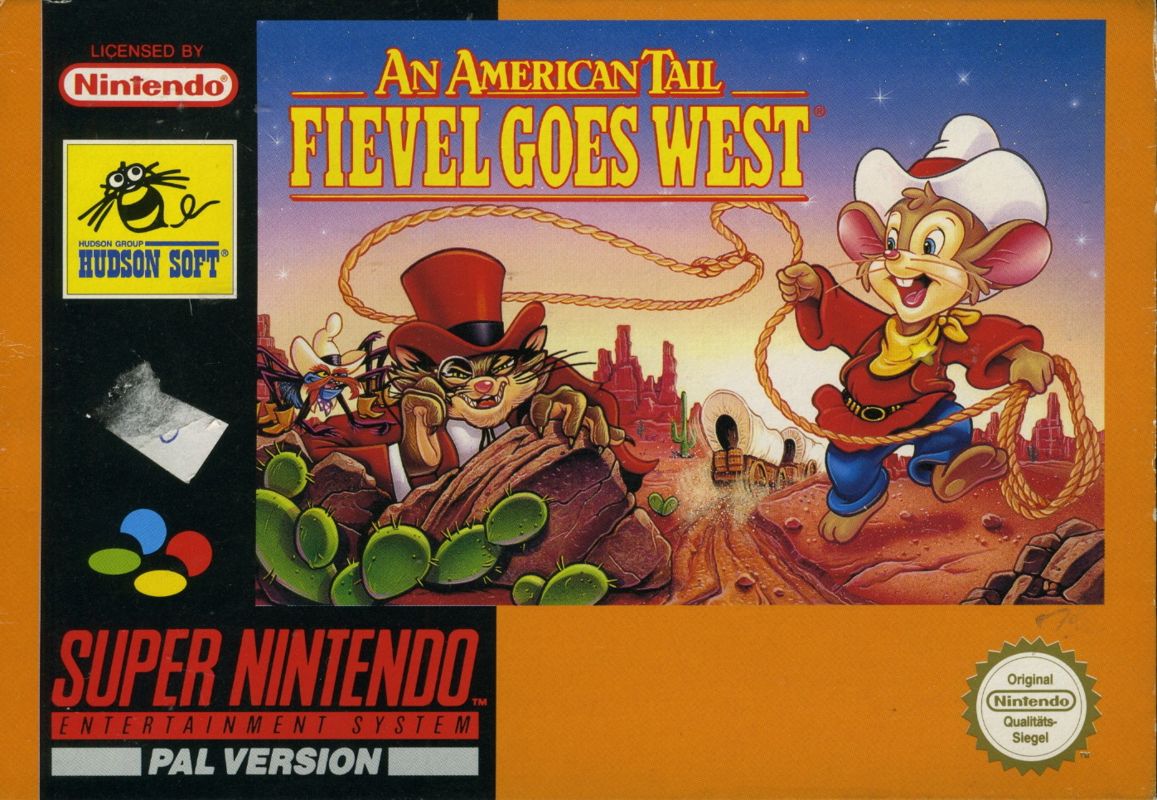
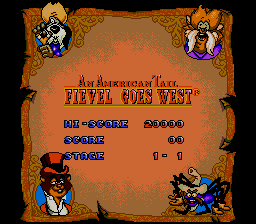
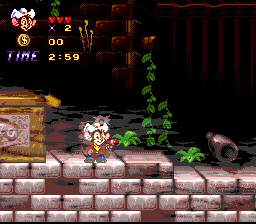
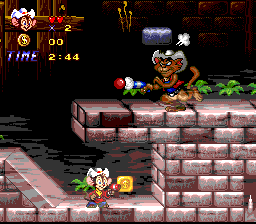
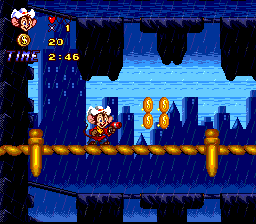
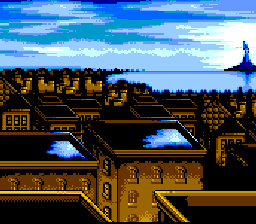



Reviews
There are no reviews yet.